Hong Kong: Twenty years later
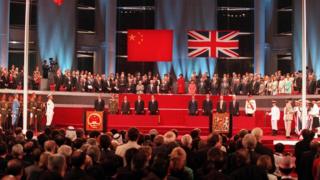 This year marks the 20th anniversary of Hong Kong’s handover from the UK to China. The BBC’s Helier Cheung, who sang in the handover ceremony, shares her personal reflections on the last two decades.
This year marks the 20th anniversary of Hong Kong’s handover from the UK to China. The BBC’s Helier Cheung, who sang in the handover ceremony, shares her personal reflections on the last two decades.
As a child, you don’t always appreciate when you’re witnessing history.
On 1 July 1997, I was part of the choir singing in the handover, in front of China’s leaders and millions of viewers around the world.
It was a historic day. But I was nine at the time, so my most vivid memories were:
All of us in the choir had grown up speaking Cantonese. So singing in Mandarin felt both familiar and unfamiliar – it signified a culture we recognised, but did not grow up with.
There were lots of dancers with pink fans, and I remember China’s then-President Jiang Zemin holding up a piece of calligraphy that read „Hong Kong’s tomorrow will be better“.
But that night, I saw on TV that some had been protesting against the handover. It was one of my first lessons about Hong Kong’s divisions – some were happy to be part of China again, but others were afraid.
I didn’t always follow politics then, but politics still affected me. Some of my friends emigrated ahead of the handover, because their parents weren’t sure about life under China.
And 1997 was also the start of the Asian financial crisis, so I overheard adults talking about stock market crashes, and suicides.
As a child, it was more comforting to be oblivious about the news.
Even as my friends and I went to secondary school, we rarely thought about developments in mainland China – we were teenagers after all.
This all changed in 2003. Hong Kong was hit by Severe Acute Respiratory Syndrome (Sars) which travelled over from southern China.
Suddenly whole buildings were being quarantined. School was cancelled – shortly before our exams – as well as our junior high ball.
To some, it almost seemed unfair – the virus had spread here after officials in mainland China covered up the outbreak.
Yet Hong Kong, which handled the outbreak more transparently, was the focus of a lot of international coverage, and was the city with the most deaths – nearly 300.
My friends and I became more pragmatic. We did everything we were told to – wearing face masks, disinfecting our hands and taking our temperatures before school each day.
But we kept meeting up in McDonald’s after class, as we always did. One friend told me: „If you die, you die, there’s nothing you can do. You just need to do the best you can. “
By summertime, Hong Kong was Sars-free. But another crisis, this time political, was rumbling.
The government wanted to introduce national security legislation, known as Article 23.
It would have outlawed treason, secession and sedition – words I had to look up – and allowed our government to outlaw groups banned in mainland China.
The bill struck a nerve. Although many countries outlaw treason and secession, to many Hong Kongers it reminded them too much of mainland China.
On 1 July 2003, half a million people, including some of my classmates, marched against the bill.
A few days later, the government was forced to shelve Article 23, after one of its political allies, a pro-business party, withdrew its support.
My friends were jubilant, telling me they had „made history“. Many felt that, although there was no democracy, it was possible to vote with their feet.
The Sars outbreak and Article 23 row made local and Chinese politics seem more relevant to our daily lives.
And by the late 2000s, mainland China felt more entwined with Hong Kong than ever.
When I was a child, some of my classmates, somewhat cruelly, mocked „mainlanders“ as people who squatted and were poor. But now, more people were learning Mandarin, and Hong Kong’s economic future seemed to depend on China’s.
China loosened travel restrictions, making it easier for mainland tourists to visit Hong Kong.
It gave the economy a much-needed boost, but resentment was also growing.
I was studying abroad by then, but whenever I flew home I would hear people gripe about the sheer number of tourists, and how rude some appeared.
Some tourists bought up huge quantities of baby milk powder, leaving local parents without enough.
I could no longer recognise many of the shopping malls my school friends and I used to frequent. We grew up with cheap jewellery stalls and snack shops – but now shopping centres were dominated by designer brands that wealthy Chinese tourists preferred.
The other big change was in politics. When I was at school, expressing an interest in politics was more likely to get you teased than admired.
But by 2012, students were holding hunger strikes to oppose a government attempt to introduce „patriotic education“ classes.
And in 2014, something surprising, almost unthinkable, happened. Tens of thousands of people, led by students, took over the streets, demanding full democracy.
Growing up, it was easy to avoid talking about politics.
But with protesters sleeping in the streets for weeks, the subject was suddenly unavoidable.
Families and friends started arguing – in person and on Facebook – and „unfriending“ people they disagreed with.
Supporters felt it was worth sacrificing order and economic growth for true democracy, but critics accused the protesters of „destroying“ Hong Kong.
One woman told me her relatives were angry she took part in the protests and now, two years later, they still didn’t want to meet her for dinner. „Hong Kong’s become so split,“ she said.
Recently, after years in the UK, I got to return to Hong Kong as a reporter.
A lot feels the same. The territory is still clean, efficient, and obsessed with good food.
But young people seem more pessimistic – with politics and soaring house prices their main bugbears.
Surveys suggest young people are the unhappiest they have been in a decade – and that up to 60% want to leave.
Recently, some have even started to call for independence from China, frustrated with Beijing’s influence and the lack of political reform.
Their resentment stems from Hong Kong’s handover or even the Sino-British negotiations in the 1980s.
„We were never given a choice,“ one activist said. „No-one ever asked Hong Kongers what they wanted. “
Protests have become angrier. Most demonstrations I witnessed growing up were peaceful – even festive.
Now, some rallies are more confrontational and prone to clashes, while the government seems less willing to make concessions.
It’s not surprising that, in an online poll run by a pro-government party, people chose „chaos“ as the word to describe Hong Kong’s 2016.
From violent protests , to legislators swearing and scuffling in parliament, politics has definitely been chaotic at times.
But, chaotic or not, what really strikes me about Hong Kong is how alive and adaptable it is.
Whether in business or politics, Hong Kong is full of people fighting to be heard.
Local entrepreneurs are constantly devising controversial or creative ways to make money – such as renting out “ capsule units “ in their homes, or starting a rabbit cafe .
And, even as artists complain of pressure to self-censor, pop music has become more political and fresh news websites and satirical news channels have popped up.
Hong Kong may be a relatively small territory with a population of 7.3 million, but I love the fact it has never lost its ability to surprise me.
© Source: http://www.bbc.co.uk/news/world-asia-china-38489435
All rights are reserved and belongs to a source media.


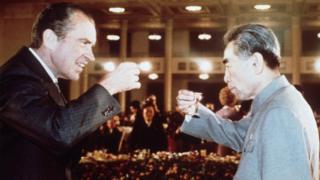 As Donald Trump becomes US president on Friday many will reach for a drink. Washington DC will be whirl of parties, galas and balls.
As Donald Trump becomes US president on Friday many will reach for a drink. Washington DC will be whirl of parties, galas and balls. 
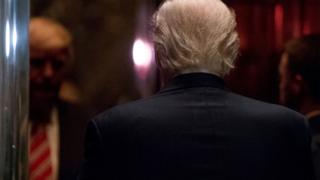 Shortly after Donald Trump’s shock win in the US election, the BBC considered the ways the world could change.
Shortly after Donald Trump’s shock win in the US election, the BBC considered the ways the world could change. 
 Windsor Castle is undergoing a two week spring clean before it is re-opened to the public over the weekend.
Windsor Castle is undergoing a two week spring clean before it is re-opened to the public over the weekend. 
 “Is it nostalgic?” asks Mia, the aspiring actor played by Emma Stone in the musical La Land . “Are people gonna like it?” She’s agonising over the play she has written but this is surely the voice of the writer-director Damien Chazelle asking these questions of his movie. To which the answers would be: “Duh!” and “On the whole, yes.”
“Is it nostalgic?” asks Mia, the aspiring actor played by Emma Stone in the musical La Land . “Are people gonna like it?” She’s agonising over the play she has written but this is surely the voice of the writer-director Damien Chazelle asking these questions of his movie. To which the answers would be: “Duh!” and “On the whole, yes.” 
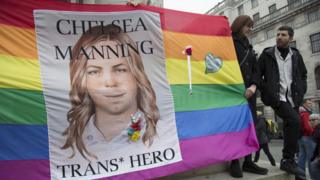 The US army private serving a 35-year prison sentence for leaking classified documents has thanked President Barack Obama for shortening her sentence.
The US army private serving a 35-year prison sentence for leaking classified documents has thanked President Barack Obama for shortening her sentence. 
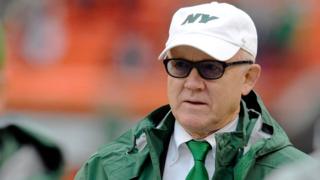 President-elect Donald Trump appears to have picked NFL tycoon Woody Johnson to be US ambassador to the UK.
President-elect Donald Trump appears to have picked NFL tycoon Woody Johnson to be US ambassador to the UK. 
 Former “Friends” star Jennifer Aniston may be back on television screens again soon.
Former “Friends” star Jennifer Aniston may be back on television screens again soon. 
 No one is born with an innate understanding of time, and babies must learn to synchronize and coordinate their behavior with the rest of the world. Until then, they demand attention at all hours of the day and night, completely upending their parents’ schedules. And for all of us, travel can be disorienting and disruptive, especially if we visit a place where time is organized quite differently from what we’re used to (like in Spain, with its afternoon siesta ).
No one is born with an innate understanding of time, and babies must learn to synchronize and coordinate their behavior with the rest of the world. Until then, they demand attention at all hours of the day and night, completely upending their parents’ schedules. And for all of us, travel can be disorienting and disruptive, especially if we visit a place where time is organized quite differently from what we’re used to (like in Spain, with its afternoon siesta ). 
 South Korea’s national airline has used electric stun guns on five passengers during flights, the BBC has learned.
South Korea’s national airline has used electric stun guns on five passengers during flights, the BBC has learned. 

